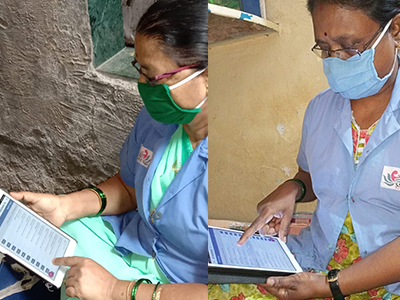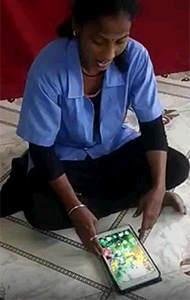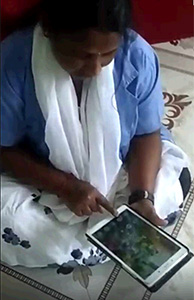SNEHA (Society for Nutrition, Education and Health Action) (www.snehamumbai.org) is a secular, Mumbai-based non-profit organization founded in 1999 by Dr.Armida Fernandez, Neonatologist and former Dean of Lokmanya Tilak General Hospital and Medical College (Sion Hospital).
SNEHA works towards the vision of realizing healthy and safe urban communities in urban informal settlements.
The organisation adopts a life cycle approach to break the inter-generational cycle of poor health in urban slums, addressing four major areas of public health - Maternal and Newborn Health, Child Health and Nutrition, Adolescent Health, and Prevention of Violence against Women and Children.
It works to empower women and slum communities to be catalysts of change in their own right and also collaborates with existing public health systems and health care providers to create sustainable improvements in urban health.
SNEHA directly intervenes with communities to improve health outcomes. Over 78,000 high risk pregnant women benefit from the Maternal Referral model, an innovative model created within the multi-tier public health system to ensure high risk pregnant women reach the appropriate health facility in the shortest possible time to deliver safely. They have screened over 42,000 children under the age of 5 years and reduced prevalence of malnutrition between 28%-33% in four large slum settlements. They have worked with over 14,000 adolescents to improve physical, reproductive and mental health. They have addressed over 13,000 cases of domestic violence across 9 counselling centers in Mumbai and Thane.
SNEHA has also done trained over 8000 public health staff and 6000 Police to improve delivery of public health services

Automated Field Operations for Enhancing Care and Efficiency
While providing care to pregnant women and young children, ensuring timely visits is a key success factor. The scheduling of field operations varies based on program protocols and beneficiary needs e.g., pregnant women, severely malnourished children. The scheduling of visits done was a manual process - taking a lot of effort and time, and resulting in risk of care gaps for acute cases.
Koita Foundation worked with SNEHA to automate the field operations through development of Team Care platform. Team Care led to greater efficiencies in the system and better monitoring of high risk cases as well as adherence to visit schedule protocol . The integrated platform also enables tracking of field office productivity and performance tracking. Team Care has created a scalable digital platform for SNEHA.
Key Business Problem
Absence of an automated tool for scheduling visits led to a time consuming process of scheduling as well as significant training needs for field officers in managing care protocols. There was also a higher risk of missing important visits (esp. for high risk mothers and children) and it was difficult to monitor timely completion of visits. There was also a need to highlight high risk cases and/or escalate such cases to the supervisor to allow for timely action.
Our Solution - Team Care
The Team Care solution has a configurable scheduling capability based on program and beneficiary needs. Field officer component of Team Care Mobile (android app) automatically schedules visits for each mother and child based on the visit history, clinical condition, and standard SNEHA protocols, thereby ensuring full compliance and increasing field efficiency. Moreover, Team Care Mobile has features to highlight high risk cases which can be automatically viewed by the Program Officers. In addition, Team Care Web app has been developed to monitor and control operations - tracking overall program impact, field officer performance and effectiveness, and individual high risk cases.
The Koita Foundation has greatly helped us improve efficiency and enhance data security in our IT and network systems through a detailed audit and mitigation plan.
Rizwan and Rekha's focus on improving the frontline worker's efficiency has led to the pilot of the TeamCare app, a simple tool using our existing data base to help our frontline workers with task scheduling. This has not only saved time and effort on daily planning, but also supports protocolized coverage of the target beneficiaries, while improving supervision. Based on the success of this pilot, we hope to scale the TeamCare app across SNEHA as well as use it with our partners as we scale our work to new geographies.
Ms. Vanessa D'souza
CEO of SNEHA


